HOME | ABOUT US | MEDIA KIT | CONTACT US | INQUIRE
HOME | ABOUT US | MEDIA KIT | CONTACT US | INQUIRE

We can’t get into this without some ground rules, so right off the bat: If the Baby Boom covered the period from 1946 to 1964, what defines Generation X and the Millennials? Only a gaggle of eggheads like social scientists could take such a simple question and turn it into a series of “yes, buts …” and argue that Generation X started as early as 1961, or runs from—get this—1964-1974. A generation in 10 years? Please. Millennials, too, have been saddled with undefined starting points.
We get it: Generations aren’t all neatly defined by starting and finish lines. One of our favorite stories about the Baby Boomers entails a man born on the leading edge in 1946, who became a parent at age 18, in 1964. His daughter, technically, was a Boomer, too, but they clearly weren’t of the same “generation.”
With that in mind, any exploration of gener-ational leadership requires a definition. To be consistent with the traditional Boomer measure of 1946-1964, a like period for Gen-X would run 1965-1983, and 1984 until the end of 2001 for Millennials. OK, so it runs a year past the start of the most recent millennium. Deal with it.
Many societal pundits have commented on the barbell effect that they say puts Gen-X at a huge disadvantage to either the leading or trailing generations in terms of their sheer numbers. But if you set some reasonable breakpoints—still can’t get over that 10-year bit—Gen X isn’t quite as outnumbered as some have said. We’ve seen numbers like 78 million Boomers/46 million Gen-Xers/81 million Millennials. Unless immigration has become a much bigger factor than we’ve been led to believe, those numbers simply don’t wash.
Live-birth statistics since World War II suggest that it’s more like 76 million Boomers, 62 million Gen-Xers and 75 million Millennials. Still a big dip in the middle—on the order of 12-13 million—but not so pronounced as the 25-30-million gap we’ve heard about.
All of that is a long wind-up to this point: two-thirds of the nation’s Gen-Xers are now more than 40 years old—the oldest are in their 50s. It won’t be long before 40 Under Forty is strictly the domain of the Millennials, who just last year overtook both previous generations in terms of share of the U.S. work force.
Which raises a question with great import for the Kansas City region as well as the nation: As the Boomers bow out and Gen X moves forward in fewer members, is the pipeline of emerging leaders filling quickly enough, and with the need-ed quality? It is if you listen to what members of the 2016 Class of 40 Under Forty have to say about leadership, how they understand it, and where they believe it will take them.
Edward Greim, a lawyer with Graves Garrett, views leadership through the prism of team, but with accountability at its core: “The leader is the one who holds himself or herself accountable, and where necessary, holds team members accountable,” he says. “No other principle will sustain a team over the long run.”
Says Lesle Griessel of Northwestern Mutual Financial Net-work: “The greatest thing about leadership is who you have to become to do it well. As the business environment evolves, we must be able to continuously develop and grow ourselves, especially to be in a position to lead others.”
Jaclyn Anderson of Waddell & Reed says leadership begins with a vision and is sustained by perseverance. “Without a vision there can be no plan, and without a plan there is no assurance of growth or success,” she says. “A clear vision of the end goal and perseverance to carry it out will help ensure success.”
For Jessica Spalding, it’s more about action than talk. “Showing your team how to do the impossible will help to empower those individuals so that they can do the same,” she says. “Building an organization is hard; building an amazing org-anization is even harder. It takes leaders willing to roll up their sleeves alongside a group of individuals willing to unlock their potential and let go of self-doubt.”
Matt Hoggatt of Adknowledge cites the motivational piece. “The most important part of leadership is being able to attract and motivate great people,” he says. “Building a great team culture is super important because a great culture has the ability to overcome obstacles and fill holes in your strategy.”
Leadership, says Brian Sharbaugh of Premium National Products, “manifests itself in many ways.” But sometimes, he says, “the strongest leaders aren’t the people who naturally possess the skills or want to become leaders, but the people who need to be encouraged to challenge themselves to achieve more and to be convinced that they can make a difference.”
Sporting Kansas City’s Jake Reid cites the Get-Your-Hands-Dirty Principle: “You can’t ask someone to do something if you’re not willing to do it yourself,” he says. “Leadership to me is not about giving orders, it’s about leading by example, and getting in the mix with your staff on a daily basis. If you’ve never done it, or aren’t willing to do it, then it’s difficult for your people to rally behind you.”
Denise Portnoy of Spencer Fane cites the role of service-oriented leadership: “To be a successful leader, you must really listen critically to your team, be calm in stressful situations, and support and mentor those around you. The focus of leadership should be ‘what tools can I provide my team to help them succeed,’ not ‘what do I need my team to do for me.’ ”
Leadership, says Kalinda Calkins, is grounded in values: “Strong leaders act with integrity and don’t compromise them-selves or their beliefs when doing business.” Employees stay at a company, she says, “because they believe in the management
and direction of the leadership.”
Ricky Paradise distills leadership down to two words: Own it. “Own your role, own your responsibilities, and own anything else that needs to get done,” he says. “As a leader, definitely own your failures. Own everything.”
Like we said: The future is in good hands. But we’ll leave you with a final thought: The most recent generation, born after 2002—let’s call them Generation X-box—won’t hit high school for another year. That means more than a third of the Millennials have yet to reach 22, the prime time for picking up a college degree. There’s a lot of work-force change—and changes in leadership—coming, and soon. Meet this year’s leaders.
Enjoy!
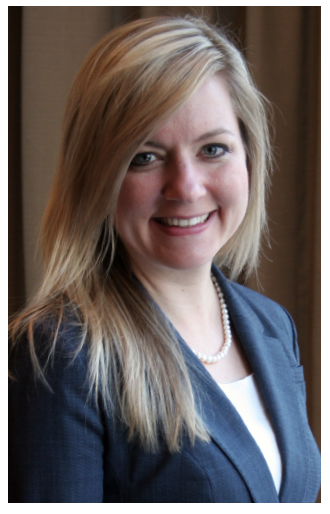 JACLYN ANDERSON
JACLYN ANDERSON
“My greatest career achievements,” says Jaclyn Anderson, “have been achieved through a non-traditional path.” In that sense, you could view her career as a case of cart before the horse—but one where the horse would have a hard time keeping up. She had no college degree, and no experience in economics, when the director of research for investment management at Waddell & Reed recruited her to apply for a new role as economic analyst. Clearly, some-thing in her work in the client-services division demonstrated that she was ready for much more. Not only did she jump into those uncharted waters, she went back to college full-time to earn her degree from Baker University—summa cum laude—in business administration and finance. And she wasn’t done: Anderson then bagged an EMBA degree from Washington University in St. Louis. Today, the 34-year-old is U.S. Economist at W&R, where she provides daily economic analysis and forecasts for executives and portfolio managers who have more than $100 billion assets under management. She holds a Series 6 securities FINRA license, and is a member of both the National Association for Business Economics and the CFA Society. “In addition, faith, family and service are incredibly important to me,” Anderson says, which is why she spent nearly a decade volunteering with a local ministry called My Sister’s House, duties which included a mission trip to Zimbabwe. Now, with the ink barely dry on the graduate degree she earned in December, she looks forward to new volunteer opportunities, time with her boyfriend, and indulging herself a bit with travel, photography and art.
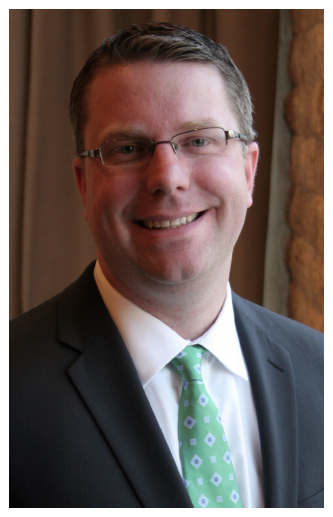 JAY BEEBE
JAY BEEBE
Less than a decade ago, assets under management at Creative Planning stood at $591 million. Today? More than $17.4 billion. One reason for that dramatic surge has been the addi-tion of sharp, talented, dedicated investment professionals like Jay Beebe. Since joining the Leawood firm less than three years ago, this 33-year-old private wealth manager has been among the top performers in the firm’s history in terms of AUM growth, with more than $400 million in client assets. But Beebe also understands the larger role he plays in the firm’s success: “I have also served as a mentor to other advisers on how to grow and manage their practice,” Beebe says. “Servant leadership is the way to go. People in the organization have to know you are working with them to drive their success and not just your success.” He and his wife, Mary, have a pair of sons ages four and one, so Beebe says it’s “imperative to find time to spend with them while they are young.” He’ll capitalize on that, for example, by bringing the boys along on business trips to Oklahoma, where his parents live. “This extra time in the car has been great for the relationship,” Beebe says, “and also has allowed him to spend time with my parents and build a lasting relationship.” For the past six years, he’s served on the board of Wildwood Outdoor Education Center, which provides educational programs for schools in this area and conducts summer residential camps for inner-city youth. “For many children,” Beebe says, “this is the only time they are exposed to nature, and away from what can be a very difficult setting.”
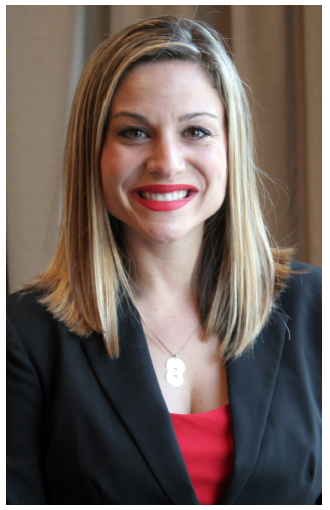 KALINDA CALKINS
KALINDA CALKINS
She was one of the first 15 employees hired when Tulsa-based BOK Financial entered this market as Bank of Kansas City. Today, the bank has nearly 300 employees and boasts $400 million in assets, and Kalinda Calkins has played a key role in that growth, having launched the Treasury division, where she’s senior vice president and treasury services market man-ager. She’s been recognized with company awards for top production, top sales team and top percentage above goal, and is a local chairman’s award winner, having grown a portfolio that includes some of Kansas City’s top companies. But, the 32-year-old says, “the most significant accomplishment I have is the sense of pride I have for my organization and amazing team we have amassed and the growth we have achieved in a tumultuous economic envi-ronment.” That doesn’t happen without a healthy application of leadership, which Calkins says is, “above all, the ability to inspire loyalty both to the company and brand, and to the person themselves. Strong leaders act with integrity and don’t compromise themselves or their beliefs when doing business.” Just a year before signing on with BOK, she earned her degree in marketing at Kansas State University, where she continues to serve on the finance board and as an executive mentor. She also serves on the board for The Children’s Place, is a member of the art leaders program at the Nelson-Atkins Museum of Art, and is a past president of the Ozanam Guild. “Kansas City,” Calkins says, “has given much to me.” She and her husband, Bret, make their home in Prairie Village.
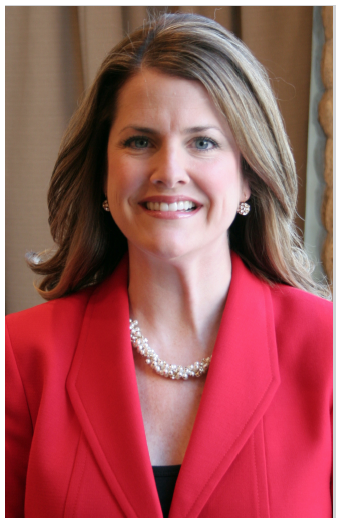 CYNTHIA CORDES
CYNTHIA CORDES
Cynthia Cordes earned her law degree from Notre Dame in 2004, then set out to make a dif-ference—and did. As an assistant U.S. attorney, she led local efforts to address one of the uglier aspects of mankind’s character: human trafficking. She launched a task force that grew to include 20 federal, state, and local law-enforcement agencies, and more than 60 non-profits and health-care providers. Cordes herself prosecuted some of the most complex trafficking cases in Justice Department history and rescued all types of trafficking victims—involved in commercial sex and forced labor as children and adults, men and women, from both the U.S and overseas. Until she came along, not a single case of human trafficking had ever been prosecuted in the history of Kansas City. By the time she left the Justice Department in 2013 to become a partner at Husch Blackwell, she had prosecuted more of those cases than any other assistant U.S. Attorney in the country. Accordingly, the DOJ named her Crime Victim Rights Act Champion of the Year. Her passion for that work continues at Husch with the launch of the first-of-its-kind pro-bono legal clinic in human trafficking, which offers free legal representation to trafficking victims nationwide, as well as the firm’s first 501(c)(3) non-profit to collect funding for victims for their non-legal needs. She also spearheaded a compliance program for companies and corporations in the manufacturing, agriculture, hospitality, and health-care sectors, with programs to help rid supply chains of illicitly gained labor, and to train employees and subcontractors in identifying the signs of human trafficking. The 37-year-old is married to Bradley Cordes, and they have three children.
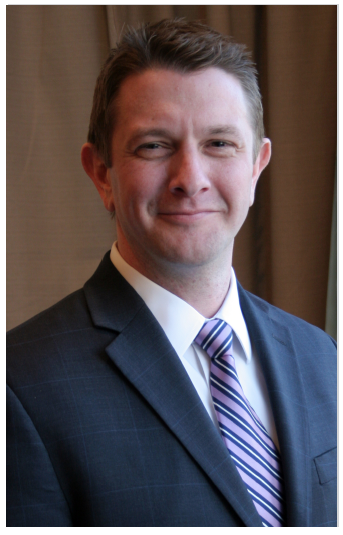 MATT DAMERON
MATT DAMERON
If you’ve ever doubted whether the choices we make as teenagers can impact the lives of thousands, spend a few minutes with Matt Dameron, and ask him about the American Legion’s Boys State program. He took part in it back in high school, and “it shaped my life,” Dameron says. Accordingly, this 38-year-old lawyer has been paying it forward with Boys Life for 20 years, most recently as director for a program that enrolls hundreds of participants every year. It is, he says, “a role I never dreamed I would have the chance to hold.” Those expe-riences have infused in him a deep commitment to public service, going back to his work as a campaign coordinator for the late U.S. Rep. Ike Skelton in 1998. After earning a law degree at MU, Dameron sandwiched stints in private practice around a two-year run as law clerk in the U.S. Court of Appeals. He then went to work for Attorney General Chris Koster in 2009, rising to chief of staff and overseeing an executive team that managed litigation, and served as counsel on several constitutional and other high-profile matters for the state, among other responsibilities. He also had oversight of the office’s $23 million budget, its legislative affairs and communications activities, and personnel policies and decisions. He returned to private practice in 2012, and two years later became an equity partner at Williams Dirks Dameron as a litigator representing individuals, classes and businesses in class actions, individual cases, and commercial disputes. “I’ve endeavored to make service a cornerstone of my professional life,” he says, “and I’ll continue to do so in the future.” He and his wife, Jennifer, have three children.
A DAM EAKES
DAM EAKES
Don’t be fooled: Central Nebraska may not be known on the coasts as a hotbed of entrepreneurship, but it’s alive and well on the High Plains. Adam Eakes was steeped in it, as the son and grandson of entrepreneurs, and the values he absorbed there live in him today. “I saw first-hand the work ethic of not only my family, but those in my rural com-munity,” says Eakes, a 37-year-old producer for insurance brokerage IMA. “This upbringing has shaped me as a father, husband, community volunteer and in my career.” His father, Eakes says, taught him early that “urgency equals profitability.” Accordingly, “I live by that motto in everything I do. This urgency combined with my leadership skills resonate with my clients, and has helped me obtain new business.” Last year, Eakes led the IMA Kansas City office in sales and finished in the top 5 percent of all sales professionals within the Denver-based company, which posted nearly $150 million in revenue and was growing at twice the national average. He has logged community service with Project Uplift and Gillis, is a past-president of his homes association in Fairway, sits on the board for the Mission Hills Country Club and he serves as chair for the Dads Club at Highlands Elementary. He also served as a volunteer with The First Tee of Greater Kansas City, a non-profit that inspires youth through the game of golf, and is devoted to causes that help secure scholar-ships to give low-income K-12 students access to quality education. He and his wife, Leslie, have two young children.
MERRITT ENGEL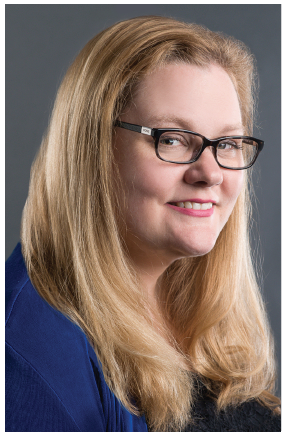
Passions—for her work, for teaching, for her family—define Merritt Engel, the 39-year-old president of Merrigan & Co., a direct-marketing specialist that focuses heavily on the needs of non-profit clients. She joined the company in 1997, shortly after earning her degree in communications studies from Rockhurst University, and learned the ropes while knocking out a graduate degree in that field over the next four years. She rose to vice president there, then last year, bought the firm from founder Bob Merrigan and became president. “I take great pride in serving my clients well,” Engel says. “My work with nonprofits is tremendously fulfilling, and I am honored to help them achieve their missions through effective marketing and com-munication.” Her office near 55th and Troost almost borders the campus at Rockhurst, where since 2010 she has fulfilled another passion as adjunct instructor in non-profit leadership studies, marketing and technology. “Mentoring young professionals, especially my students at Rockhurst, is near to my heart,” she says, as is spending time with her husband, Kevin, and their children, ages 15 and 12. Among the career achievements she values are membership in the Kansas City Direct Marketing Association—she has been recognized by the club as both Young Direct Marketer of the Year and Direct Marketer of the Year—joining the faculty at her alma mater, and developing a new curriculum there, Technology and Communication Trends in Nonprofit Organizations. Engel is also a speaker at conferences across the country on topics related to non-profit communication, e-mail marketing and direct-response strategies.
 JAKE FALCON
JAKE FALCON
If you’ve ever known the dread of staring at that phone and knowing what you’re most likely to hear on your next cold call, consider the achievements of Jake Falcon. He moved to Kansas City from Texas a decade ago when he began building a wealth-management practice from scratch. Eighty thousand cold calls—80,000!—and hundreds of retirement-planning semi-nars later, he’s an award-winning wealth manager whose team at the Falcon Financial Group, a UBS Financial Services affiliate, has more than $230 million in assets under management. “Integrity, tenacity, knowledge, and discipline are the values I live by every day,” says Falcon. “The most satisfying part of my career includes helping people to succeed and retire with confidence.” Falcon completed the Investment Strategies and Portfolio Management Program at the University of Pennsylvania’s prestigious Wharton School in 2012, then started Falcon Financial a year later. Since then, he’s been promoted three times, and now holds the title of Senior Vice President-Wealth Management, and he’s a Chairman’s Council member, too. The firm has recognized him as No. 2 under the age of 35, out of 800 in that age group, and he’s been a consistent leader in net new assets among the Kansas City complex, where he was most recently ranked third in production out of 88 advisers. Among his civic contribu-tions has been work with Catholic Charities, the First Hand Foundation, and various other organizations—work, he says, that “keeps me humbled and thankful for where I am today.” The 34-year-old Falcon is single, but not for long: He’s engaged to Rachel Lewis.
While 40 Under Forty is replete with success stories, not every high achiever has lived a gilded life. The ability to recover from failures, in fact, propels many to greater heights. That lesson is never far from Brandon Fancher’s mind. “My story, albeit an unlikely one, is more about never giving up, and the importance of not letting failures define you,” says the 34-year-old Vice President–Investment Officer, PIM Portfolio Manager for The Fancher Pribula Group of Wells Fargo Advisors in Overland Park. “I am absolutely blessed to have amazing people around me who accept me for my faults, yet accept nothing less than my best.” Younger adults typically don’t have assets that compare with older generations, but Fancher is making his mark in wealth management with a bit of a counterintuitive focus: successful Millennials. That work earned him an invitation to speak at Barron’s magazine’s Top Teams in Advisory conference in Las Vegas, where he addressed tactics that help bridge the financial-advice divide among Millennial entrepreneurs. He’s also earned a reputation for philanthropic service, assisting the largely impactful Big Slick Celebrity Weekend from the ground up for Children’s Mercy Hospital, serving on the Children’s Mercy Cancer Center Auxiliary board (including a term as president), and on the host committee for the Boys & Girls Clubs of Greater Kansas City’s Kids Night Out event. His work is grounded in a deep sense that this region is poised to be a center of wealth creation. Kansas City, he says, “is at the absolute forefront of a technological, creative, artistic, multicultural revolution.” Accordingly, “I have attempted to position our team to capture that market share with meaningful dialogue—especially among influential Millennials.” He and his wife, Hannah, have three children, ages 6, 10 and 11.
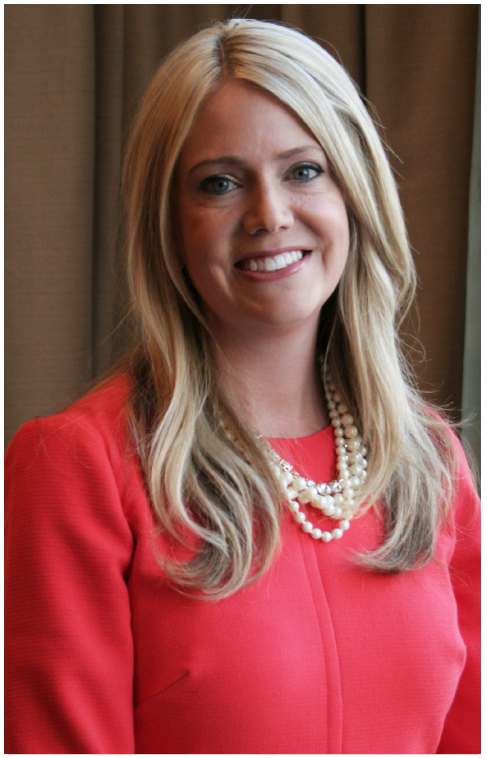 EMILY FORS
EMILY FORS
Just read through the various awards and recognitions Emily Fors has accumulated over a 15-year career—but bring a sack lunch, because it’s going to take a while. Fors is responsible for developing and implementing all communication strategies nationally at JE Dunn, and since starting there in 2011, has zipped up the ranks to become the youngest female vice president, and third-youngest overall, at the region’s largest general contractor. “What’s far more impor-tant to me than simply the title,” Fors says, “is that I am trusted and regarded as a leader by the Dunn family and senior executives of such an amazing, entrepreneurial company.” But she’s also been drawn into roles with various civic, philanthropic, and professional organizations in the area. She’s a founding board member of LiveKC, which focuses on making Kansas City more attractive to young professionals, and with her husband Rollie—who made 40 Under Forty just last year—co-chairs the American Cancer Society’s Coaches vs. Cancer effort. For the next year, she’ll serve as president of the Society of Marketing Professional Services in this area. “What I am most proud of is my family and setting an example for my two boys. I still try to pass off that ‘mommy works in construction’—at least for as long as they will buy into it. I’m pretty sure that means they think I drive a forklift,” she cracks. “However, when they point out a blue tower crane, I can’t help but feel proud. So maybe I’m not actually climbing a crane every day—I have climbed one once!—but I am proud to be trusted and considered a leader in a company that is building Kansas City.”
 ALEX GORDON
ALEX GORDON
Over the course of its 18 installments, 40 Under Forty has profiled a great many suc-cessful young leaders, and some of their companies have grown into pillars of the business community. Even among those people we can think of few who ever built an enterprise that’s likely to generate $72 million over the next four years, based on nothing but the tal-ent they were born with, the values they’ve picked up along the way or the skills they’ve polished with years of dedicated focus and preparation. That’s what Alex Gordon stands to realize over the next four years, based on the contract he recently signed with the Kansas City Royals following their run to the past two World Series, and the title in 2015. Chief among members of the team, Gordon seems to have been embraced as a the Local Boy Makes Good figure—like Mike Moustakas, a Californian, and Eric Hosmer, a Floridian, Gordon was a first-round pick, but his Nebraska roots and success at NU (where he was a two-time All-American) before joining the organization have given this native of Lincoln a particular appeal to hometown fans. As has his performance on the field and leader of the team. He’s arguably the most influential Royal since George Brett, and like Brett, he could end up being aligned with the team from draft day to retirement. Converted from third base to left fielder, he’s won four Gold Glove Awards, a Platinum Glove Award and one Wilson Defensive Player of the Year Award in MLB. He’s under contract through 2019, with a mutual option year in 2020, when he turns 36.
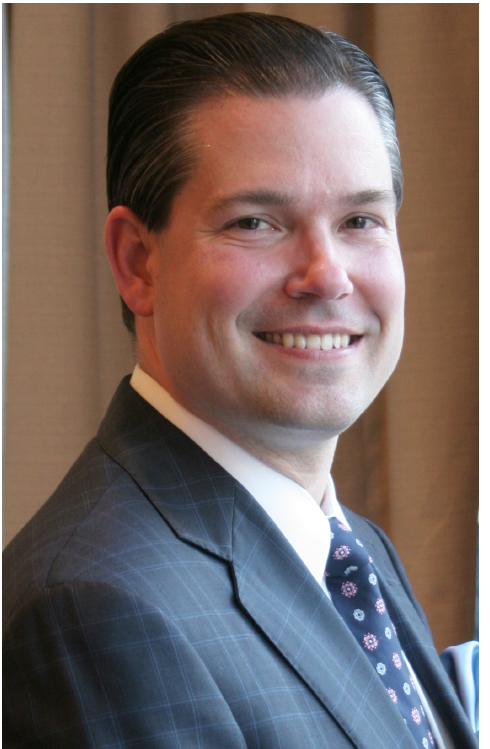 EDWARD GREIM
EDWARD GREIM
We’ve all heard about government of the people, by the people and for the people. Edward Greim is making his living—and sadly, finds no shortage of work—as a lawyer in cases of government against the people. Just within the past year, this partner at the Graves Garrett law firm has been working to expose or defend against government misconduct in cases that include the first and only nationwide class-action lawsuit challenging the IRS’ targeting of conservative groups (as lead counsel), and successfully defending groups accused of, in essence, thought crimes for their support of Gov. Scott Walker in Wisconsin. Those kinds of cases, the 39-year-old says, represent his most significant career achievements—those stemming from civil rights, taxpayer, and whistleblower litigation. He also practices constitutional law and complex com-mercial litigation, and has been involved in high-profile cases regarding Missouri’s redistricting plan, Missouri’s tobacco tax, early childhood education, clean energy, and religious liberty pro-posals. For starters. It’s easy to see why Missouri Lawyers Weekly tabbed him as Influential Lawyer of the Year in 2013. Greim stays plenty busy with efforts outside the office, too, including roles as treasurer and organizing lectures for the Catholic Lawyers Guild, running a religious-liberty essay contest for local eighth-graders, staging expert presentations and debates as president of Kansas City’s Federalist Society, and being active in his parish. “My goal is to at least suggest that there is an alternative way to meet the challenges of our professions, lives, society and govern-ment,” says Greim, who along with wife Claudia is raising five daughters, ages 2-10.
LESLE GRIESSEL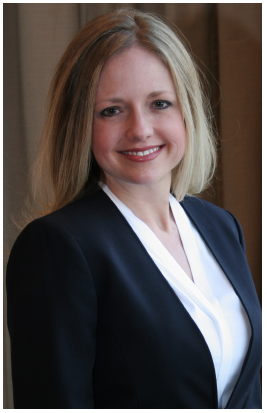
As a chartered financial consultant and chartered life underwriter, Lesle Griessel knows all about helping clients position themselves for long-term success. But where she really makes a difference for RPS Financial Services, a part of Northwestern Mutual, is by helping position the company for the long haul: She’s also the chief development officer for the Leawood office, where the task of hiring is not a one-way street. “We view the recruiting and selection of financial representatives as a mutual selection process,” Griessel says. “The office evaluates a candidate’s potential for success as a financial representative. At the same time, the candidate evaluates the office’s ability to support each individual’s professional and financial goals.” That mutuality must be working out just fine, thank you, because while on her watch, RPS placed third nationally in the number of full-time recruits in 2013. A Wichita-area native, she earned a degree in finance from the University of Kansas before signing on with Northwestern Mutual. Griessel—who was the youngest direct report to Managing Partner Philip Sarnecki when she was just 32— is considered managing partner material herself, company sources say. She’s an active member of GAMA International and the Society of Human Resource Managers, and outside the office, she’s been both a Big Sister and volunteer with Big Brothers Big Sisters of Greater Kansas City, as well as with the Kauffman Scholars Program. Her husband, Matt, also works for RPS, and they have two daughters.
It’s hard to fathom how Jason Grill-still only 36-has packed so much into a career that still has a long way to go. He’s a licensed attorney in Missouri and Kansas, he’s a media and public affairs consultant who has worked in the White House and at CNN, he served two terms in the Missouri House, he cofounded Sock 101, he’s a senior advisor at Parris Communications and he has his own media company. And he wraps all of that around a bottomless passion for this place. “I love Kansas City and am proud to live here,” Grill declares. Need to label him? Just call him an entrepreneur. “I want to do everything I can to help advance businesses, develop communities, reinvigorate neighbor-hoods and share KC’s story throughout the nation and the world.” Grill has also been a volunteer with Autism Speaks, an organization that addresses a cause close to his heart. His House service from 2007-2011, in fact, produced what he considers his most meaningful achievement to date—successfully sponsoring legislation to reform autism-insurance law. “I will never forget the long journey to get this legislation passed,” he says. “A truly bipartisan effort. Seeing it expand cover-age and deliver medically beneficial services to children and families throughout Missouri the last five years has been incredible.” His own successes have shaped his views on leadership, and he distills them into three key qualities: “Positivity, drive and communication. If you’re personable and lead with a smile, create a culture that communicates and sets expectations and have a work ethic that is persistent, yet patient and open-minded, you will be a successful leader.”
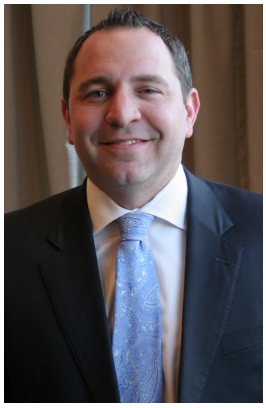 DANIEL HIATT
DANIEL HIATT
When he joined Swanson Midgley in 2006, Daniel Hiatt thought the work would entail a simple application of the things he learned in law school. He soon came to realize that he had to be more than just a lawyer if he were to truly serve his clients: The job calls for you to be part psychologist and analyst, part father-confessor, with a hint of bartender thrown in, always listening to what the customer has to say. “I quickly learned that being an attorney meant more than simply understanding the law,” the 37-year-old says, “but also developing a relationship with clients in order to serve them in both an effective and efficient manner.” The “practice” of law, Hiatt says, went far beyond the boilerplate skills of researching and writing; just as important was the need to know and understand each client, their personal and business needs, and enabling them to achieve their intentions and goals as they envision. “As an attorney whose practice focuses on estate planning and corporate/business law,” he says, “I quickly learned that truly knowing your client is of paramount importance.” That approach, he says, has set his course from associate attorney to equity member at the Kansas City firm. “It has offered me the opportunity to be more involved on a day-to-day basis with attorney recruiting and adding talent to a firm whose history of 130 years in Kansas City speaks for itself.” He also credits the support he gets from home, where he says his wife, Alli, and their three awesome children “are a blessing that as a husband, father and attorney I am grateful and fortunate to have in my corner.”
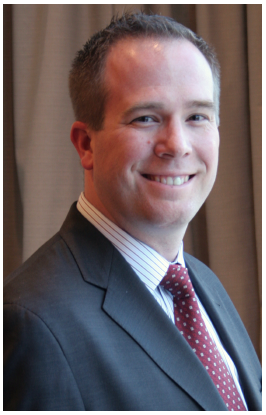 BRIAN JOHANNING
BRIAN JOHANNING
As he was wrapping up his degree in agribusiness management at the University of Missouri, Brian Johanning accepted an internship, incongruously enough, in the construc-tion sector. The link between his college coursework and his career track, it seems, is making things grow. He’s done that at almost every career stop, first as an estimator and project manager for one construction company, Columbia-based Emery Sapp and Sons, to whom he will always be grateful for “taking a chance on a kid out of college with no clue what he wanted to do,” Johanning says. From there, he became operations manager at another contractor, then returned to Sapp, this time as director of business development. During that stint, he also knocked out an MBA from Rockhurst University. That set the stage for Johanning—he’s still only 33, after all this—to move up as director of strategic growth for engineering firm Shafer Kline & Warren in 2014, and last year, to vice president for infrastructure and development for that Lenexa firm. He’s also served for four years with the Design-Build Institute of America—one year as president—an alignment, he says, “that challenged me and gave me a leadership opportunity.” He and his wife of eight years, Courtney, have a pair of 3-year-old twins. “Along with my Labrador and best friend, Shyler, our house is warm with love and energy,” Johanning beams. “We’re having a lot of fun and always pinch one another because we know how blessed we are to have such an incredible family and friends to support us along the way.”
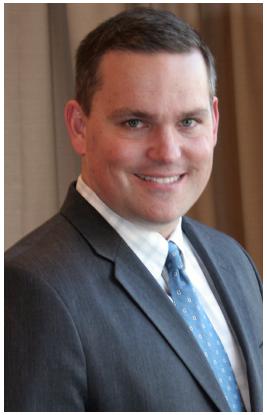 MATT HOGGATT
MATT HOGGATT
“To innovate and do something truly unique, you are going to go through a series of failures or resets before you create something that’s amazing.” So says Matt Hoggatt, general manager of the e-mail business for Adknowledge, the on-line marketing data and analytics gurus. He’s right at home in that tech paradise, where he played a key role in building AdStation into one of the most successful on-line advertising networks in the world. Don’t take our word for it: Adotas gave it the No. 1 global ranking for advertising performance. After getting that project on a successful track, Hoggatt turned his tech guns on InboxMobi, which helps companies engage, retain and monetize users of their apps. Grow.co hailed it as the “the most revolutionary user-retention tool we’ve seen,” and it went from launch last year to an eight-figure line of business more than 6 million consumers, and counting. “I’ve always had an interest in technology and have really loved experimenting with ways to build new products to improve our world,” the 39-year-old says. You don’t get to that level without running into hitches, but Hoggatt comes at those with the right frame of mind: “You have to view each of these moments as learning opportunities as opposed to obstacles,” he says, “and keep focused on your goal.” Of course, his true passion, he says, “and what keeps me grounded is being a husband and raising three kids with the high school sweetheart and now wife (Heidi). At home, I split my time being a soccer coach, handyman, counselor, arbitrator, church volunteer, professional living-room wrestler, and superhero” Superhero? “Well,” he says, “at least my kids think so!”
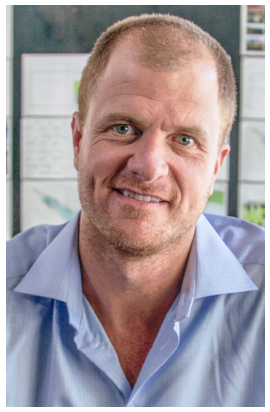 MATT HUFFT
MATT HUFFT
Last year, Hufft Projects earned a prized spot on Ingram’s roster of Best Companies to Work For, and one look around the sprawling, 60,000-square-foot shop on Karnes Boulevard was all anyone needed to know that this place was, well, going places. That’s largely through the drive of 39-year-old Matt Hufft, who co-founded the company (his other half, Jesse, really is his other half, at home and at work; she’s CEO). They moved here in 2005 with a dream, and have ridden Matt Hufft’s talent, passion, dedication and business sense to emerging design stardom. But they’re more than design—the open workspace, now with nearly 70 employees, is abuzz with fabrica-tion of all sorts, complementing the creative skills that have landed more than 300 architectural, fabrication and construction projects over the years, both residential and commercial, ranging in budget from $20,000 jobs up to $60 million undertakings. The leadership skills needed to reach those levels are grounded in what he says must be “a perfect balance of being confident and humble. Being confident requires doing a lot of homework and hard work. Being humble simply requires being able to listen.” The hard work part got him to this level; now, he says, “my focus is starting to be more long term/high-altitude visioning, and less in the weeds.” Hufft earned his degree from KU and a masters at Columbia University, and this LEED-accredited professional has seen his award-winning work featured in Architectural Record, Metropolitan Home, Interior Design, Esquire and other publications. An active and avid member of the architectural trade associations, he also donates, along with Jesse, time and skills to various charitable organizations.
 DERRICK JOHNSON
DERRICK JOHNSON
Professional football is too often a revolving door, one that opens to a relatively lucky few. Many will start their careers in one city and, if that’s not the right fit, make stops in others along the way. Far luckier—and fewer still—are those who start playing in one city, make a lasting impact on their teams, and position themselves to finish out their careers without ever working the business end of a U-Haul ramp. And then there are the rare few that get to do all of that AND earn the affections of an entire city’s fan base, people who consider him one of their own. Among that elite few, and we do mean elite, is Derrick Johnson. Last fall, the All-Pro linebacker for the Chiefs, now 33, passed the legendary Gary Spani to become Kansas City’s all-time leading tackler, cementing his place in fans’ hearts and memories. It was a particularly gratifying achievement, given that he’d missed virtually all of the 2014 season after suffering an Achilles-tendon rupture in that year’s opening game. Johnson joined the Chiefs in 2005, after being selected in the first round of the NFL draft out of Texas, and made an impact from Day 1. He earned the Mack Lee Hill Award as the team’s top rookie, made the Pro Bowl three straight years (including defensive MVP honors there in 2013), and set a franchise record of 179 tackles in a season in 2011. He was just the third linebacker in NFL history to score two touchdowns on interception returns in a single game (sorry, Denver!). Now, it appears his career will wrap up in Kansas City; last month, he signed a three-year contract worth a guaranteed $9 million, and potentially $21 million.
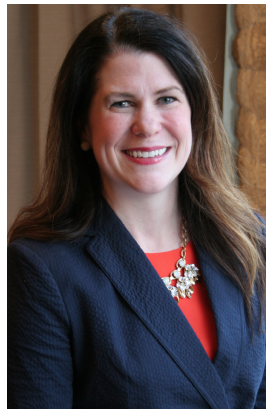 MARY JANE JUDY
MARY JANE JUDY
Mary Jane Judy doesn’t shrink away from leading teams of 40 lawyers crafting multi-billion-dollar deals; it’s part of the gig as a real-estate lawyer for Polsinelli PC. Sometimes, though, the little deals can mean just as much, even more. Especially when they represent the fulfillment of a client’s dream. Case in point: the Bier Station on Gregory Boulevard. Before it could make a splash as a nationally-recognized craft-beer outlet, Judy helped owner John Couture secure city approvals and the building lease. “It has been incredibly rewarding to be a part of the team that has taken Bier Station from a dream of John’s and made it a reality—it’s now one of the top 51 craft beer bars in America,” Judy beams. That was a considerably different undertaking than the $3 billion sale of a Fortune 100 company and the attendant lease-backs—roughly 250 of them—that she helped muscle through a year ago. “I’ve run a few marathons,” Judy muses, “and that deal was a transactional marathon.” She’s a Kansas City native who feels a deep sense of commitment and an obligation to make the city the best it can be. “As parents to three young sons, my husband, Michael, and I believe it is our responsibility to instill in them the value of service and charity,” she says. She’s a one-woman civic whirlwind, with a deep history of service that includes the city’s five-member Board of Parks and Recreation Commissioners (and through that, as a trustee for the National World War I Museum and Liberty Memorial); she’s been a board member for the Committee for County Progress, the Civic Council, and the MU Law School Foundation, and she was a co-chair for the Trolley Run Kids’ Run for CCVI.
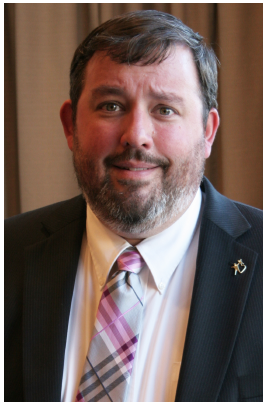 JON HILE
JON HILE
Jon Hile isn’t the kind who will take personal credit for it, but we’ll connect some of these dots for you: He’s been chief operating officer for Big Brothers Big Sisters of Greater Kansas City for the past eight years. In that same time span, the Kansas City organiza-tion has ranked in the top 5 percent of all Big Brothers affiliates nationwide seven times. His office was recognized as the best Big Brothers agency in America in 2011, 2013 and 2015, it has won awards for entrepreneurial fund-raising excellence and innovative approaches to service delivery, and it was cited by Non-Profit Times as one of the top 100 places to work in America. We’re pretty sure we see a common thread in that, and it bears the fingerprints of this 39-year-old, who also is a past winner of the national Margaret Slack Award, presented annually to a Big Brothers executive for professional excellence in service, innovation, and leadership. “Successful leaders,” says Hile, 39, “spend very little time directing, and a great deal of time ensuring everyone in their organization has the tools and skills necessary to do their job well. True leadership is found through service.” That includes his own service on the school board for the Kansas City district since 2012, and as the board’s president since 2014. He’s part of the Early Learning Commission initiative to make universal Pre-K a real-ity in Kansas City, sits on the steering committee for the Kauffman Foundation’s Kansas City Scholars program, and is a youth coach for his daughter’s second-grade soccer team. He and wife Allyson also have a pre-school-age son.
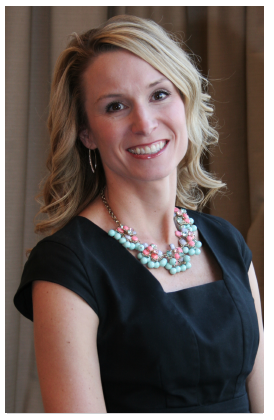 JENNIFER LYON
JENNIFER LYON
She’s from the area, she’s passionate about its growth prospects, and every day when she goes to work, Jennifer Lyon gets to sell … Kansas City. What’s not to envy about a gig like that? “I’ve had the most pleasure watching our region come to life and become nationally known for sports, arts/culture, food, music and more,” says the 38-year-old vice president for investor rela-tions at the Kansas City Area Development Council. The non-profit organization serves as the sales and marketing team for the Kansas City region, with a mission to attract companies and tal-ent to an 18-county area in Missouri and Kansas. “In 2014, our team was recognized by national site consultants (our clients) as the No. 1 economic development organization in the U.S.,” Lyon beams. Her job entails working directly with the leadership of the 250 corporate inves-tors who fund KCADC, getting them engaged and involved with its projects, initiatives, events, networking opportunities and more, Lyon says. “I lead KCADC’s multi-faceted investor relations program that consistently achieves a 93 percent-plus retention rate—and 96 percent retention in 2015, the highest ever,” she says. She’s also been involved with creating and leading the council’s award-winning talent recruitment initiative, TeamKC, which helps member companies attract the best and brightest to the region, Lyon says. She and her husband, Jake, have two children who help fill their weekends with soccer, baseball, archery and the occasional bit of downtime every working mom craves. Lyon was president of Bra Couture KC (formerly Art Bra), serves on the TeamKC Advisory Board, and helps lead KCADC’s Women in Development group.
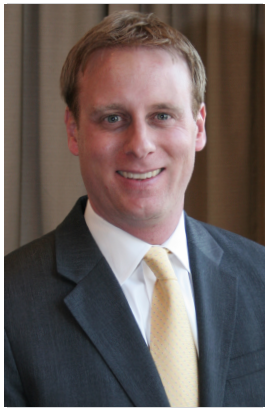 TOM MEIER
TOM MEIER
You know those days when the amped-up cable business news guys are simply going nuts over a 400-, 500- or the occasional thousand-point drop in the market? When the trading bell rings in the afternoon, Tom Meier is able to look at life’s silver lining. “There is nothing I value more than spending time with my wife (Nikki) and our 19-month-old daughter,” he says. “My fam-ily has taught me perspective even on a bad day.” Meier is director and chief investment officer for Leawood-based Financial Advisory Service, helping oversee the day- to-day operations and investments of one of the largest independent investment firms in Kansas City—it has nearly $1 billion in assets under management for families all over the United States. “I was honored to be recognized by my colleagues who interact with me on a daily basis,” who made him a director in 2013, he says. “I have been in leadership roles in our firm for quite some time, and was the youngest shareholder in the firm’s 37-year-history,” Meier says. “Making decisions about hiring, compensation levels, strategic business planning, and investment discipline impact other firm members, but more importantly, the clients we serve. That is a heavy responsibility that I take very seriously.” Meier, 38, has also served as treasurer for U.S. Rep. Kevin Yoder’s political action committee and his national financial advisory board. “Being involved in civic opportunities that help shape the direction of our country is a priority of mine,” he says, as are his passions for children and education. He’s been a volunteer for Junior Achievement, helping teach economic and financial concepts to young children, and with the annual fundraiser for Reviving Baseball in the Inner City (RBI).
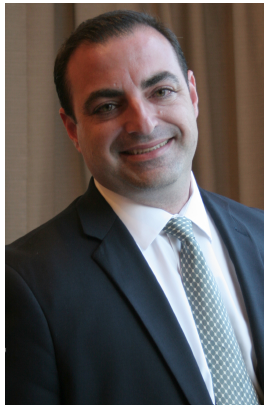 JASON NEAT
JASON NEAT
Baseball has—or used to, anyway—utility infielders who could play most any position. Sekisui XenoTech, a contract-research organization in Kansas City, Kan., has Jason Neat. Since joining the company in 2003 as a bench scientist, he’s held at least 10 different front-line research and execu-tive positions—in the scientific department, research and development, production, sales and oper-ations. He’s even served as interim CEO before settling back into his current duties as executive vice president and chief operating officer. He has helped steer new product and service lines, including a new service that has added $9.8 million in revenue in just over three years. The company has added dozens of jobs, seen a five-fold increase in contract study output, and seen revenue growth of 125 percent the past three years. Neat 39, has been part of all of that while traveling the globe, visiting 39 states, Europe, the Middle East and Asia. “Of the above,” Neat says, “it was all teamwork that has accomplished everything, I am fortunate to be surrounded by amazing and gifted individuals.” That spirit has also led to community outreach programs and employee fund-raising of more than $200,000 for various causes. He and his wife, Jacquelynn Renee, have three children, ages 5-9. In addition to roles as husband, father and executive, he’s has spent time volunteering with Habitat for Humanity and Christmas in October. In addition, he has worked with colleagues and co-workers to help organize fund-raising efforts that have benefited the Rose Brooks Center, ALS Fund-Raiser Challenge and Stop Hunger Now. Finally, he and his wife have recently been certified in foster care to open their homes, hearts and family to the many children in need.
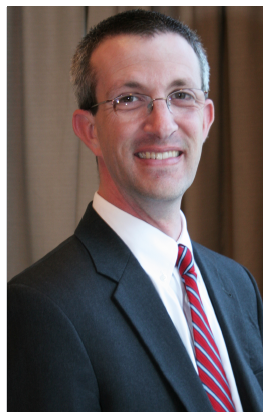 JUSTIN NICHOLS
JUSTIN NICHOLS
Father, community activist, civic leader, litigator, and manager. Those are pillars in the well-ordered life of Justin Nichols, a lawyer with Lathrop & Gage. The success he’s had in life, he says, starts at home. “First and foremost, I am devoted to my family,” he says. His wife, Kelli and their three kids, he says, “are my biggest priority, and they mean the world to me. They are what drives me and are the focus of my days (and a lot of late nights), and I love nothing more than coming home to them at the end of a long day at work.” Part of that devotion to family, Nichols says, includes trying to better the community where they live: Shawnee. His volunteer and ser-vice efforts are aimed at bettering Johnson County’s third-largest city; he has served as chairman of the Shawnee Chamber of Commerce board, and on the executive committee for the city’s economic development council, roles that he says “have allowed me to shape and improve my family’s community.” A Topeka native with a law degree from the University of Micigan, Nichols also served for two years on the Johnson County Public Policy Council, representing Shawnee’s interests in a coalition with other Johnson County communities. None of that, though, would be possible without his achievements at work, a career spent largely in the courtroom. Nichols has frequently served as lead counsel on successful high-dollar cases as a litigator, and the firm has recognized his work by making him chair of its banking litigation department, “While winning cases is important,” Nichols says, “I’m most gratified by the recognition of my peers and the firm as a leader.”
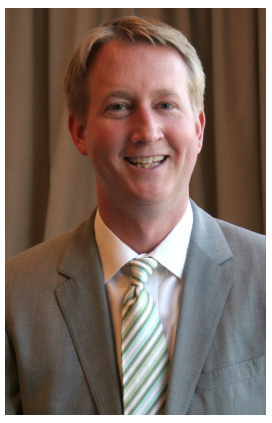 RICKY PARADISE
RICKY PARADISE
“I am,” Ricky Paradise declares, “a Kansas City boy, with Kansas City values and Kansas City goals.” In a city of entrepreneurs, it’s not hard to see where that attitude fits in. “I am an entrepre-neur at heart,” says Paradise, who is the senior vice president for Fiorella’s Jack Stack Barbecue. “I am most proud of the jobs I have created here in our city.” His start-up history includes over-sight of the outdoor division for Jayhawk Plastics, a family-owned business based in Olathe. After earning his business degree from Texas Christian and his law degree from KU, Paradise grew that team from one person to 35 people and took revenue from zero to $5 million. He took his business skills to the fitness area with Everest Recreation and Front Door Fitness, serving as president of each, before applying his legal training to the role of general counsel for NorthPoint Development as general counsel and vice president of operations. “It might not sound like much,” he modestly says, “but that is roughly 125 jobs that I have helped to create.” At Jack Stack, the 39-year-old is responsible for the overall performance of nationwide shipping and expansion of the U.S. distribution network. He and his wife, Shae, have three children, and one of his ser-vice goals is helping kids escape poverty. He’s been a board member for 10 years for the Cath- olic Education Foundation, which has provided $10 million in scholarships to local families. “These scholarships give kids the opportunity to get an excellent education, which helps them break the cycle of poverty,” Paradise says. He’s also a national board member and past president for Canaan Orphanage-Haiti, and served for six years as a board member for TCU.
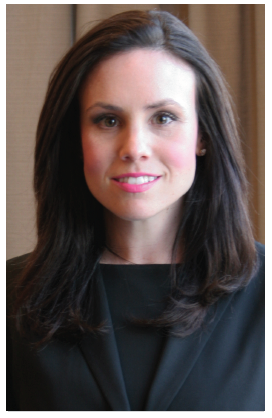 DENISE PORTNOY
DENISE PORTNOY
She may not look the gladiator-type, but make no mistake: Denise Portnoy is ready for battle, every day. At 32, she’s a partner for the Spencer Fane law firm, charged with traveling the country to battle unions, federal agencies and plaintiffs on behalf of heavy-industry companies in railway, manufacturing and construction. “Sometimes I’m behind the scenes, handling messy employee discharges or delicate sexual harassment investigations,” she says. But when it’s time to fight, you can find her wading into—and winning—bet-the-company arbitrations and multi-million dollar discrimination and harassment lawsuits for employers, campaigns against union over-reach, and negotiations in high-stakes bargaining that impacts hundreds of employees. “I love what I do, and I’m proud of my unique career.” Partnership came just six years into her career, where she’s developed expertise in the niche of railway labor law, an almost exclu-sively male-dominated field. Portnoy serves on the ABA’s Labor and Railway committees and edits its leading national treatise. She also is a frequent speaker at large conferences across the country. A Kansas City native, she’s passionate about the community, and safety issues in par-ticular. (That’s a family thing; her husband Dan prosecutes violent crimes for Jackson County.) Together, they’ve lobbied for passage of Amendment 2 to the Missouri Constitution, which eases prosecution of child sex-crime perpetrators, and they are long-time supporters of MOCSA, which serves with sexual-assault victims; she is, in fact, co-chair of its “Young-at-Art” Benefit for this year and next, and is a former fund-raiser for the Protect Missouri Children initiative.
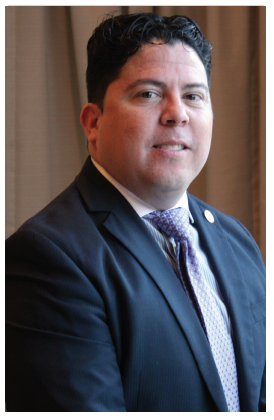 LEO PRIETO
LEO PRIETO
Leo Prieto’s career, like the rest of his life, is a demonstration of how hard work will take you where you want to go. He had to come at it from a slightly different direction, becoming a natural-ized citizen while still a student in college. But he’s been living an American dream ever since he arrived in this country at age 3. Prieto is director of community engagement for Truman Medical Center, but he’s a lot more than that title implies: community organizer, motivational speaker, lawyer, and marketing consultant, at various times, in the non-profit, corporate, and political fields. No matter what setting, he has worked to advance the causes of Latino immigrants in the U.S., and is recognized at a national level for it. Raised in Garden City, he earned his degree in Spanish and social sciences from K-State, then a law degree from KU. He followed that up with a stint in the civil-rights division at the Department of Justice, shaping national immigration policy as a fellow with the Congressional Hispanic Caucus Institute. Before taking his present role at Truman, he was director of corporate partnerships for the Wizards (now Sporting Kansas City), where he helped set best practices for Major League Soccer in community-based rebranding, partnerships with international soccer teams, fan development, and strategic corporate Latino marketing. He also ran the regional office for the U.S. Hispanic Leadership Institute, mobiliz-ing grassroots leadership initiatives and voter-registration campaigns, and educating corporate America on the political value of the Hispanic market. He won the 2015 Ohtli Award, the highest honor given by the Mexican government for life-long commitment to emigrants.
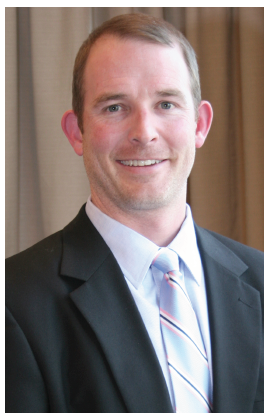 MICHAEL REARDON
MICHAEL REARDON
Last year, when McCownGordon launched a new division to focus on smaller, fast-moving projects, the leadership reins went to Michael Reardon. “We are a nimble group that provides construction services for new construction and tenant improvements projects,” the 38-year-old says. “We deliver projects with flexibility, accelerated schedules, and a lean but collaborative approach.” A Rockhurst High graduate who earned a degree in finance from Notre Dame, Reardon attributes his success at McCownGordon to a complete alignment of personal and orga-nizational values: integrity, relationships and performance. “My approach is solutions-driven,” he says, “and my goal is to grow our customer base while enhancing relationships with existing customers.” That has included clients like the Toy & Miniature Museum, the Nelson-Atkins Museum of Art, Sprint, UMB, American Century and others. “Personally, my dedication to my family”—wife Leslie and their three children—“drives me to succeed,” Reardon says. “I dedicate all my free time to supporting my family through coaching in sports or simply spending family time together.” Reardon initially followed his training to Ernst & Young, but moved into con-struction just two years later, and found a better fit, first in business development for Walton Construction, where he flourished, earning recognition from the American Subcontractors Association of Kansas City as Project Manager of the Year, then joined McCownGordon in 2010. Reardon is also active with the Children’s Mercy Hospital Mercy Ambassador, working with the steering committee, and served for a decade on the Rockhurst High alumni board of governors.
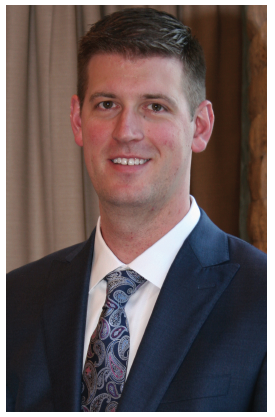 JAKE REID
JAKE REID
Whether it goes through a rim or screams past a goalie, Jake Reid has always been attracted to the ball—and it’s definitely been bouncing his way. Only 33, he became one of the nation’s youngest professional-sports franchise presidents earlier this year, for Sporting Kansas City. There’s a good reason for that: When he came to Kansas City in 2010 as Sporting’s vice president of sales, the soccer franchise ranked last in virtually every financial measure. As he progressed to chief revenue officer, and then to his current role, Sporting became a league leader in ticket sales, sponsorships and merchandise/concession revenues for a team that has sold out 72 straight MLS matches and all of its season tickets for three straight years. No surprise, then, that Reid has been recognized as the Ticketing Executive of the Year by the league (in 2012), and that Sporting was Corporate Sponsorship Team of the Year in both 2014 and 2015. “Culture and people are the most important piece of business to me,” says Reid, a Pennsylvania native who previously worked in the NBA for the Charlotte and New Orleans franchises, and for two years with an English soccer club. Reid also acknowledges that “it’s extremely important to have a strong work/life balance. I have two young boys (with wife Danielle), and being around to see them grow up is invaluable.” He also serves on the board of Boys Hope Girls Hope KC and the Victory Project, and previously was young professional coordinator as a board member for the Kansas City Sports Commission.
ADAM ROSSBACH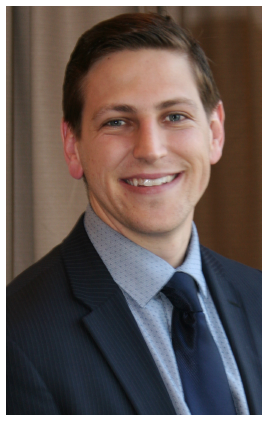
Adam Rossbach earned his degree in marketing and finance at the University of Nebraska, where they know a little something about football, then went to work in sales for the Kansas City Chiefs. Maybe it’s a red thing. After blitzing up the ladder to director of corporate partner-ships there, Rossbach made a move to a sector where the action knows no off-season: health care. He’s vice president for strategic business solutions at Mosaic Health Care, the St. Joseph-based provider that is transforming the way we think about the broad continuum of health care. That’s a lot to achieve in any young executive’s track, and Rossbach doesn’t even turn 30 until June. At Mosaic Life Care, he said, he’s proud to lead a team “that provides innova-tive solutions to businesses, including occupational medicine, on-site health care, and other innovative delivery methods.” The company is implementing solutions never before offered in the market, he notes, including telehealth clinics and mobile clinic services at multiple employer locations. He and his wife, Ashley, have a one-year-old daughter, and “my proudest life accomplishment is my family,” he says. “No matter what happens through life, business, or community, they are the constant. Family is what we live for.” He serves on Mayor Sly James’ Turn the Page KC board and on the board for Hope House, and was previously was on the board of Arts in Prison. “I’m committed to creating awareness for those in our community, and particularly the community east of Troost,” says Rossbach, who walks that walk of com-mitment to the urban core as a parishioner at St. James Church, at 39th and Troost.
 SAMUEL SCOTT
SAMUEL SCOTT
The concept of “family” means a lot to Samuel Scott—and on multiple levels. For one, he’s part of a second-generation family-owned business. But as president of Sunrise Advisors in Leawood, he’s also working with fourth-generation client families, as well. “Most fulfilling is the fact that I get to work closely with my own family and I believe we’ve made a positive difference in the lives of other families,” Scott says. “We are honored by the relationships we’ve made over the years and the trust we’ve earned from our clients. We now have some fourth-generation clients, and we owe much of our successes to our fiduciary role and family-centric culture.” Since he started there 15 years ago, after earning degrees in economics and managerial studies from Rice University, the firm’s revenues have grown 1,468 percent—nearly 20 percent per year—and assets under management are closing in on $500 million. That makes Sunrise one of the area’s largest, independent “fee-only” wealth-management firms, and earned it a spot on the Financial Times FT300 list, recognizing the top 1 percent of all firms. He’s a longtime advocate for an industry-wide fiduciary standard, which would require that investors’ interests be put first 100 percent of the time—a designation that applies to only one in 20 financial professionals, Scott says. He and wife Audrey are at home in Overland Park, where he’s a youth baseball coach for teams ranging in age from elementary school through college, and he’s founder and presi-dent of the L.E.A.D.-KC Foundation.
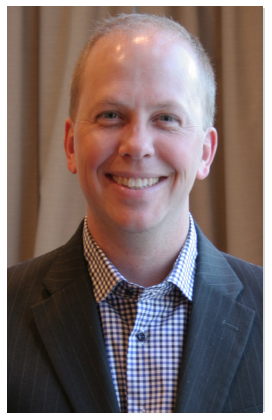 ADAM SEITZ
ADAM SEITZ
It takes a certain measure of faith to leave the security of a big law firm and start your own boutique niche firm. For Adam Seitz, it was not merely a matter of confidence in his own skill set. “Personally and professionally my faith plays a defining role,” he says. “I try to follow and honor God in all that I do and I want to have an authentic faith in Jesus that marks how I treat my wife and children and how I run our business.” Four years ago, he helped found Erise LP, an Overland Park firm steeped in the minutia of patent and intellectual property. The 38-year-old, who earned his law degree from KU after picking up a bachelor’s in bio-chemistry, is capitalizing on depth of knowledge with his Erise team. Since startup, he says, “we have more than doubled in size and had tremendous success.” As with his role defending Garmin in a $30 million arbitration involving an IP claim with over 60 products at issue—Seitz was lead counsel on that. “We won on all counts, including attorney fees,” he notes, and the young firm already has clients like Apple, Sony, Ford Motor Co., and video-game manu-facturers like EA and Ubisoft. Erise has been recognized as one of the top IP boutiques in the nation, and last year was as the “Firm to Watch” by Managing Intellectual Property. “My faith led me to making a commitment to finding a better way to serve clients and a better way to treat colleagues,” he says. “Our faith, unique business model, and approach to relationships have played a major role in our success.” He also had an eight-year stint with the Catholic Education Foundation, and is raising three children with his wife, Sarah.
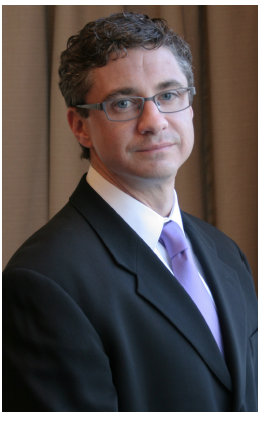 BRIAN SHARBAUGH
BRIAN SHARBAUGH
There’s no shortage of achievement in Brian Sharbaugh’s career: Helping Premium National Products, also known as ZuPreem, increase profitability in pet products production every year since joining the company in 2011; growing its EBITDA 22.3 percent on flat sales pound volume; cutting health-care costs 30 percent by joining a PEO and sharing those savings with employees; even structuring a companywide minimum wage of $12.75 for tenured employees to increase their overall skill levels and retain superior performers, and reward those committed to the company’s future. All noteworthy, laudable and praiseworthy. And all, in the proper context of his life, second-ary to what really matters. He and his wife, Heather, are the parents of three children—including twins—who were all born severely premature, and by a 1-in-365 coincidence, on July 18, 2007 and 2011. Each case presented unique development issues, the kind that will put a parent’s inner strength to the test. “After spending a combined 11 weeks of visiting my children in the NICU, eight of which were spent believing our son was going to have cerebral palsy, it gave me great perspective on concentrating on what matters in life and letting the rest go,” Sharbaugh says. “It also taught me how strong you can be when you don’t really have another choice.” So it’s no small measure of understatement when Sharbaugh, ZuPreem’s chief financial officer, says that “having children was probably the most defining event in my life.” Sharbaugh says he “freely admits to being addicted to excel. I believe excel models can be used to solve just about any of life’s problems, from a weight-loss projection model to analyzing vacation options and schedules, I can build a model to meet our needs.”
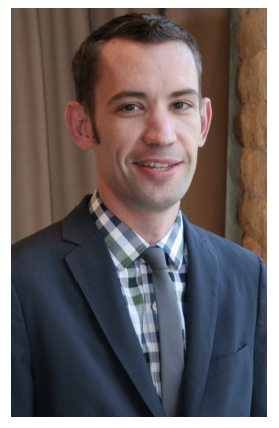 ADAM STOVER
ADAM STOVER
“My parents,” says Adam Stover, 36, “instilled in me very early on that hard work and determination will get you anywhere and that nothing is handed to you—you have to earn it. This was instilled to me not through words, but through their work ethic and approach.” After leaving his design fingerprints on more than $1 billion worth of interior and premium spaces at sports facilities and public spaces around the world, it’s safe to say that young Adam has followed that counsel to the letter. He’s a lead interior designer, director of prod-uct development and principal at Populous, one of the nation’s premier design firms, where he’s known for the passion he exudes in pursuit of unique solutions. And for his ability to lis-ten. “Lead by example or don’t lead,” Stover says, but if you do lead, “be the best listener in the room—the best leaders are the best learners.” And if they learn anything, it’s how much their own success relies on helping others succeed. “No one person reaches extraordinary heights alone,” he says. “Collaboration will outperform individual efforts every time and is the underlining key to the success of every project regardless of the type or goal.” Passion and collaboration also underpinned his efforts to found Boulevard of Dreams, a benefit for the Dream Factory, and Ride2Boulevardia, a benefit for cancer research at Children’s Mercy Hospital’s cancer center. He’s also found time to be a reading buddy with Lead to Read KC, and to serve on the advisory board for the College of Architecture at his alma mater, K-State. He and his wife, Amy, have two daughters.
 JON WRIGHT
JON WRIGHT
This whole pursuit-of-excellence thing? Jon Wright gets it in a way that few executives can articulate. “Being a leader and creating a high-performance organization is a continual journey, rather than a destination—I don’t know that you ever really arrive,” says the 39-year-old general manager for the food and consumer products group at Burns & McDonnell. “You never stop leading; you’re always seeking opportunities to improve, to get better,” he says. If that sounds like K-State’s Bill Snyder talking, it’s because this former tight end absorbed precisely what his head coach was teaching. “The relentless pursuit of perfection teaches us a lot about prepara-tion and discipline, he says, and has also taught him the value of mentorship. “Any extra time outside of work, my boys and my family, I try to stay active in mentoring, passing that torch to the next generation of leaders.” After earning his degree in chemical engineering, Wright went to work for Procter & Gamble, then J.M. Smucker, before joining the engineering giant in 2011. That background helped him understand how to create a unique model for serving the food and consumer products sectors. But at Burns & McDonnell, it’s gone to another level. “The entrepreneurial spirit of our company,” Wright said, “has given me the opportunity to build a team that has extended our capabilities far beyond traditional engineering.” He and his wife, Katie, support Ronald McDonald House and serve meals there right next to their four boys. Wright also serves various needs for Sacred Heart Catholic Church in Shawnee, and is on the external advisory board for the chemical engineering department at K-State.
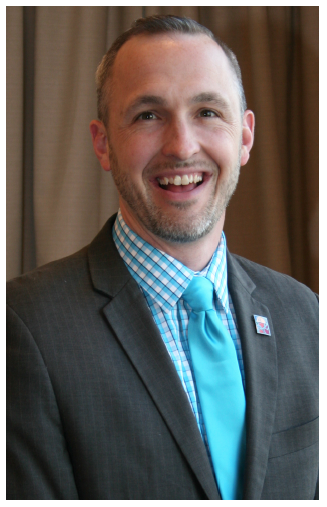 BARRY SUTHERLAND
BARRY SUTHERLAND
Construction projects are more than brick, mortar and structural steel for Barry Sutherland. He’s building more than just … buildings. “My most significant career achieve-ment is my current station in life,” he says. A native of St. Louis, he left his hometown in 2013 to open a Kansas City office for McCarthy Building Companies, the 12th-largest con-tractor in the country. “What started as two employees has now grown to a staff of more than 30” in the office and field, says the 36-year-old. In 2014, just a year after opening, the local office nearly doubled its sales goal, and hit 94 percent of the 2015 mark. “Although revenue the first couple of years has not achieved our goal,” he says, “over 90 percent of our 2016 revenue goal is already in place” before the end of this year’s first quarter. “These early successes stem from the unified, all-in team we established in Kansas City.” He’s building something at home, as well. “More important than work is service to my family as a hus-band and father,” he says. With no family in town, his wife, Christa, and their two children “have had to rely on each other and the network of friends we created,” he says. Much of that network originates from their membership at Blue Valley Baptist Church-Ridgeview Campus, where Sutherland serves on the praise team, choir, and children’s ministries. He’s also a member of the the University of Kansas Hospital’s Young Professionals Alliance, the Business-to-Government committee for the Olathe Chamber of Commerce, and is sponsorship chair for the local chapter of the Society for Marketing Professional Services.
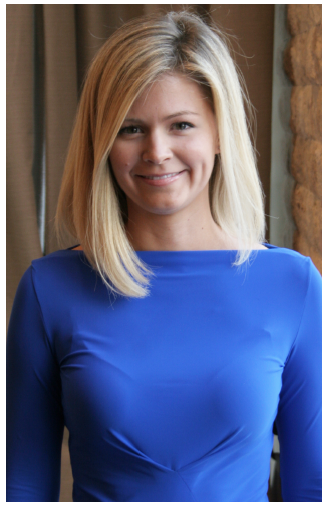 JESSICA SPALDING
JESSICA SPALDING
The word “problem” is indeed in Jessica Spalding’s vocabulary. But she pronounces it “opportunity.” How else can you explain co-founding a real-estate investment group during the middle of the great-est real-estate market meltdown in a half-century? She’s the chief operating officer for Plutus Group, which she launched with husband Zach Henderson right around the time almost every property owner in the country was thinking “sell.” “Risking everything in a down market to keep our doors open was my initiation into the world of entrepreneurship,” says Spalding, 32. She learned quickly that conservative business principles, yoked to innovative operations, could capture value where there seemed to be little. Seven years later, Plutus Group has more than 20 employees and uses over 100 subcontractors. It has developed, built and currently manages more than 875 residential units, and has 130 more in development or under way, and the strategic partnerships she’s forged have yielded $40 million in completed projects. “Each one of our projects/ventures are in response to a problem,” she says. “Housing shortage in a military area, failed or stalled subdivisions, and lack of quality/innovative entry-level affordable housing. We truly believe in what we are doing and hope to continue to make an impact in the communities that we work with.” And she’s not done yet: “Our newest venture,” she says, “which we hope to take to the market on a national level, is an efficient, technologically advanced entry-level priced home that enables home owners a more convenient, con-nect, and comfortable housing experience.” She and Zach have a 6-year-old son, and she finds time to volunteer at Pembroke Hill School and serve on the community outreach board for Central Exchange.
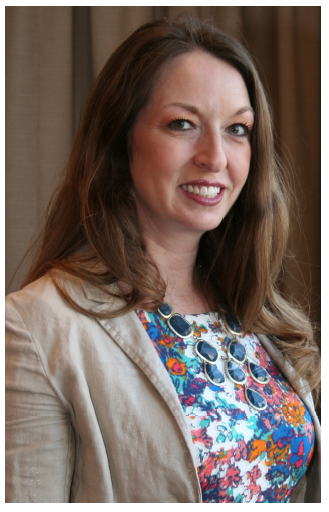 RACHEL MERLO
RACHEL MERLO
Ask almost any tech exec about how Kansas City emerged as a center for innovation, and they offer up the same two words to describe that genesis: Google Fiber. When Google selected this region over 1,100 other applicant cities in 2011, it turned to Rachel Hack to be the local face of that digital transformation. She’s since married, but is still community manager for Google’s build-out of ultra-high-speed Internet service, and acts as a liaison between organizations and leaders in Kansas City and the rest of the Google Fiber team. Other cities have been added to that Google fold, but the head start this region received as ground zero for the rollout has proven invaluable, tech executives say, yielding both tech startups here and relocations or expansions of other tech companies to this market. A 1995 graduate of Park Hill High and Truman State, Merlo, 38, is able to see the impact her company has had on this region. She’s just as interested in discovering what impact the region has had on Google itself. “In a philanthropically robust town like Kansas City, we know corporate citizenship matters,” Merlo says. “But how do you accurately measure how much a community loves your company? How do you demonstrate in real time that Kansas City is a better place because of your company’s presence? And are you able to objectively articulate the direct benefit of this work to your business?” In addition to her past service with the Hispanic Chamber of Commerce, MOCSA, Guadalupe Centers and Lyric Opera, she serves on the boards of VisitKC, the UMKC Women’s Advisory Board and Central Exchange, and volunteers with Big Brothers and Big Sisters of Kansas City.
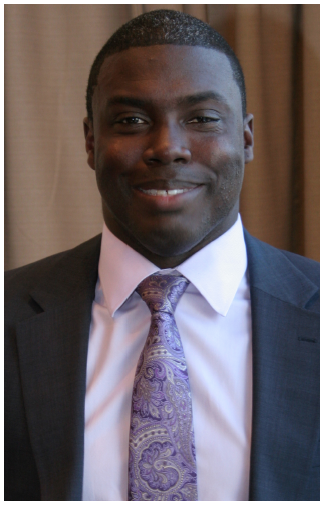 BRIAN ROBERTS
BRIAN ROBERTS
Brian Roberts won’t lie to you: The transition from his native Southern California to the Kansas City area wasn’t exactly an uncontested goal. “It was,” the 34-year-old says, somewhat diplomatically, “different.” “Having lived on the west and east coasts, the speed of everything was very different,” says Roberts, an operations associate for Lockton Companies, the insur-ance brokerage. Part of the cultural shift might be attributed to lack of full immersion: The former collegiate soccer star signed with the Kansas City Wizards out of Yale, and was on the road for a considerable amount of time, still exposed to coastal influences. “It felt much smaller here, which I learned to love,” Roberts says. “My first four or five years, I wasn’t that involved in Kansas City. It wasn’t until after I’d finished my soccer career that I learned to love Kansas City.” Ahh, those infamous Kansas City hooks. They do get into you. Roberts was coaching soccer on the side when a player’s Dad—by the name of Ron Lockton—approached him about a career at the company. Sales weren’t in the cards, but after Roberts started work-ing on his MBA at UMKC, Lockton called back with an opportunity in operations. His duties entail everything from budgeting and long-term planning to hiring, recruiting and, he says, “a bit of project management.” He’s been involved with the company’s paperless initiative, with the training and internship programs, as well as the longer-term human capital plan. He and his wife, Emily, have a newborn son, and he still coaches three soccer teams and is on the junior board for the Police Athletic League.